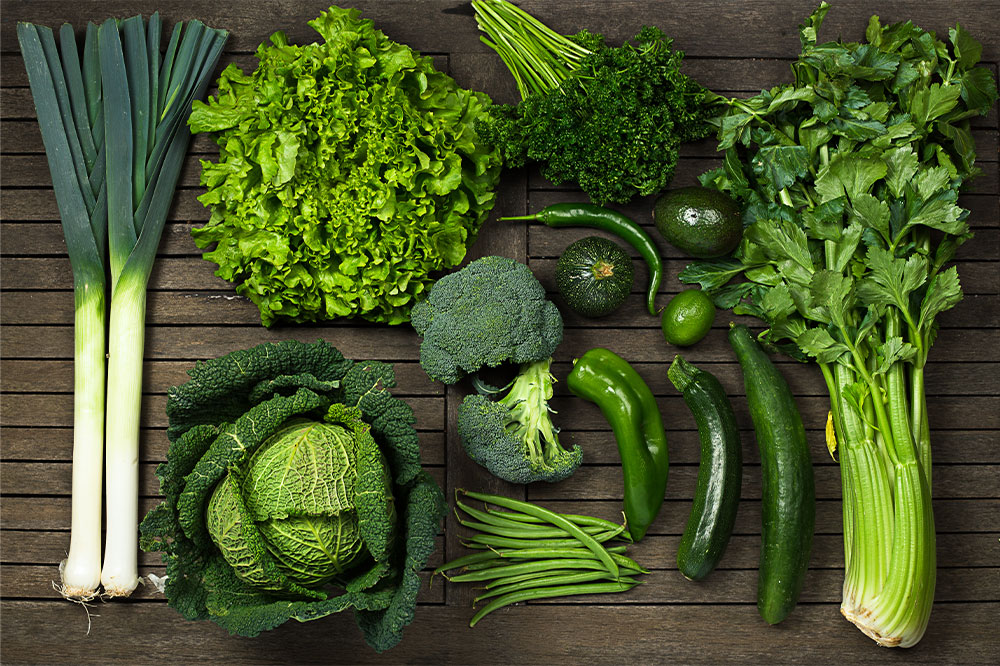7 Best Foods for Pulmonary Fibrosis Management

Pulmonary fibrosis is a chronic and progressive lung condition that leads to scarring of the lungs. A build-up of these scar tissues impacts the ability of the lungs to transport oxygen into the bloodstream. Fortunately, there are certain foods that pulmonary fibrosis patients can have to manage their discomforting symptoms. Read on to learn more about the relationship between nutrition and pulmonary fibrosis and the best foods to include in daily meals.
The connection between nutrition and pulmonary fibrosis
Your lungs play a critical role in maintaining your immunity and functionality of the body at the cellular level. When lung function is compromised, it leads to a chronic state of stress in the body.
This state of fight or flight may not allow your body to absorb nutrients properly and lead to malnourishment. Some studies, like the one in Therapeutics and Clinical Risk Management, have also found a connection between pulmonary fibrosis and gastroesophageal reflux disease (GERD). GERD itself contributes to nutritional deficiencies and may lead to serious health concerns.
Appropriate foods help the body in multiple ways and simplify living with pulmonary fibrosis. They help in:
- Optimizing your weight reduces the pressure on your lungs and makes breathing easier
- Keeping your immunity levels high
- Enhancing your energy levels
In the long run, healthy foods improve your pulmonary fibrosis symptoms and determine how well you respond to its treatment.
Seven foods for managing pulmonary fibrosis
Pulmonary fibrosis is nothing complicated. Its treatment mainly centers on including all the major food groups in your routine, primarily those rich in antioxidants, healthy fats, omega-3s, and lean protein.
Here are seven foods that you must consider including in your meal plan:
Fruits
According to a study in the Annals of Nutrition and Metabolism, the consumption of fruits not just helps you manage the symptoms of pulmonary fibrosis and significantly reduces the risk of getting it.
This is mainly because fruits are loaded with fiber. This helps improve your lung function and allows you to breathe better.
The consumption of fresh and dry fruits is recommended instead of canned fruits. Canned ones are high in sugar and may lead to blood sugar spikes. Here are the best fruits to include:
- Apples
- Bananas
- Cherries
- Citrus fruits varieties such as lemons, oranges, and grapefruit
- Mangoes
- Pineapple
- Kiwi
Vegetables
Increasing your daily intake of antioxidant-rich vegetables is the best bet if you want to delay the progression of pulmonary fibrosis. Antioxidants help neutralize free radicals, reducing your chances of developing cellular damage and inflammation and improving lung function. Vegetables are also recommended for people undergoing medical treatment for cystic fibrosis. For optimized lung health and better weight regulation, include carrots, broccoli, squash, and beetroot.
Probiotic foods
Patients with pulmonary fibrosis often complain of gastrointestinal problems. This includes GERD, acid reflux, and acidity. According to Frontiers in Immunology Journal research, probiotics tremendously impact gastrointestinal problems. They also reduce cytokine-induced inflammation and have lung-protective ability. Some of the best sources of probiotics are yogurt, kefir, cottage cheese, buttermilk, and sauerkraut.
Fatty fish
As verified by the American Journal of Epidemiology, omega 3s have anti-inflammatory properties, which tremendously impact lung abnormalities. In addition, regular consumption of omega-3 food sources reduces incidents of hospitalization and death.
Some of the foods rich in omega-3 fatty acids include:
- Walnuts
- Flaxseeds and chia seeds
- Salmon
- Sardines
- Mackerel
Poultry and eggs
For people with pulmonary fibrosis, weight management is a significant concern. This condition often causes difficulties in breathing and fatigue, which act as a deterrent to exercising. Not exercising for long may cause you to gain weight, a risk factor for other chronic conditions. Alternatively, this disease may cause some people to lose their appetite leading to unintentional weight loss. Including lean protein sources such as skinless chicken and egg whites in meals will help you optimize your weight. Other sources include beans, lentils, tofu, and turkey.
Low-fat dairy
Fortified dairy products contain vitamin D that aids in proper lung function, and delay the progression of pulmonary fibrosis. However, dairy products such as milk, cheese, and yogurt are also high in fats, which may be counterproductive for people experiencing shortness of breath and further impair lung function.
According to the Journal of the American College of Nutrition, you must include low-fat dairy sources in your routine. Some of the best options are low-fat or fat-free milk, yogurt, cheese, and milk.
Whole grains
Whole grains are excellent sources of good carbohydrates and fiber. They not just give you energy and reduce the occurrence of fatigue but also help in regulating your weight. Eating fiber-rich foods keeps you satiated and reduces the urge to binge. This benefits patients with pulmonary fibrosis who struggle with losing weight, depending on the severity of their symptoms. To maximize their benefits, you should opt for unpolished rice, brown rice, barley, popcorn, quinoa, and wild rice. Besides helping with shedding off some pounds, these whole grains also help lower your cholesterol.
How can you optimize the benefits of these foods?
Here are some easy tips that will help you make the most of your lung-healthy meal plan:
- Your meals must be low in sodium and trans fats.
- Avoid consuming acidic foods and drinks such as citrus fruits, tomatoes, and coffee 3 hours before bedtime.
- Keep yourself hydrated, especially while exercising.
- Instead of consuming larger meals, eat five to six smaller meals throughout the day.
- Avoid consuming sodas, high-calorie desserts, and fried foods.
Conclusion
Pulmonary fibrosis is a condition that needs serious attention. Relooking at your meal plan and including these foods will go a long way in helping you manage your symptoms and slowing down the progression of the condition. Remember, everyone’s body is different, and what has worked for someone may not work for you. Before including any of these foods in your routine, consult your pulmonologist.







